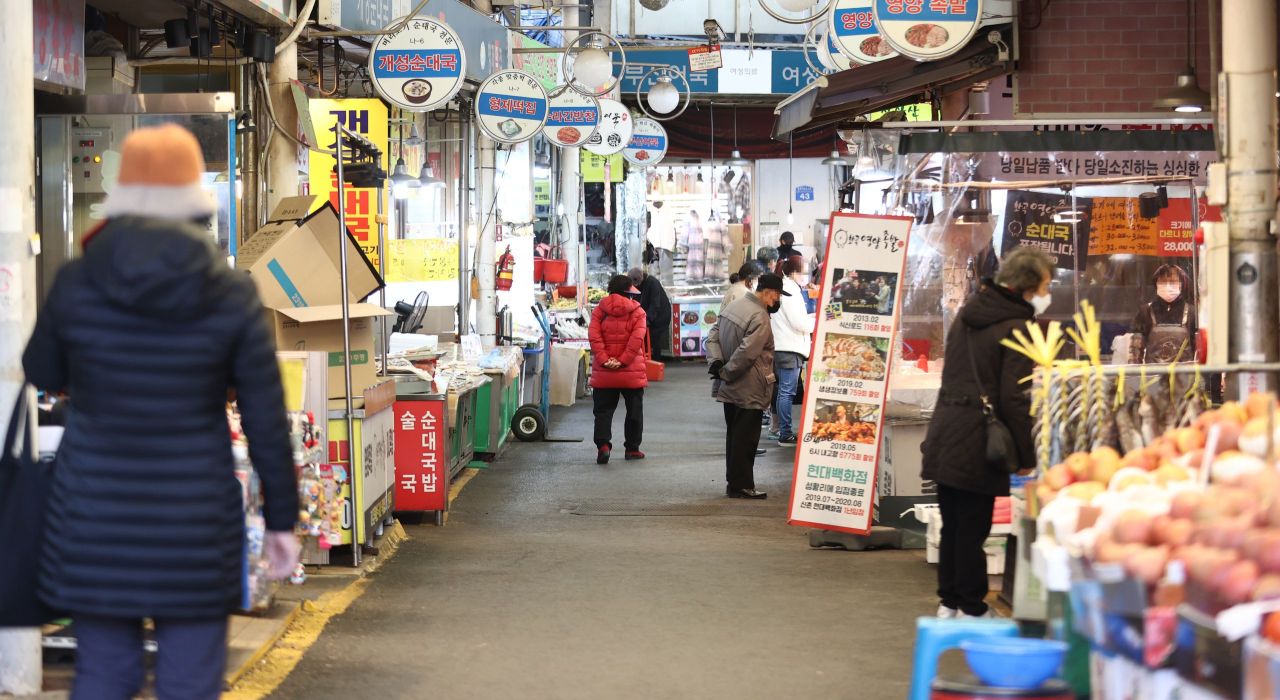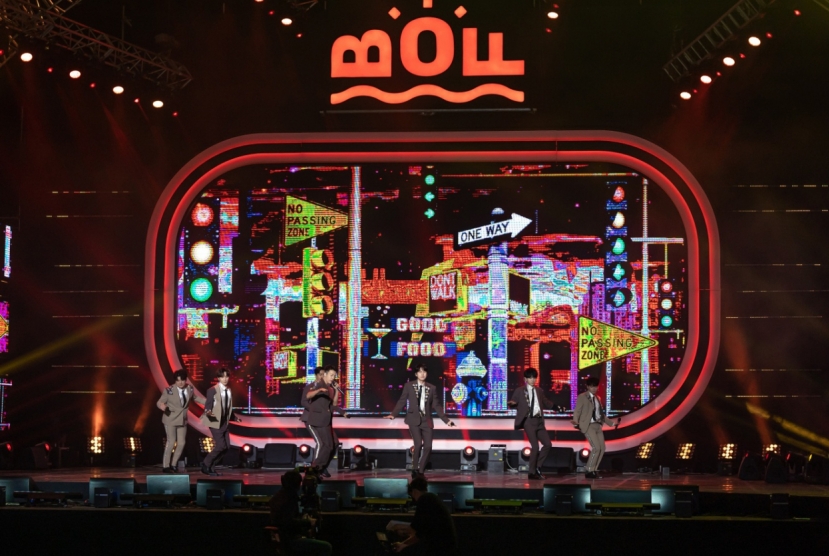S. Korea's consumer prices grow less than 1% for 3rd month in Dec.
By YonhapPublished : Dec. 31, 2020 - 09:06

South Korea's consumer prices grew less than 1 percent for the third straight month in December, data showed Thursday, indicating low inflationary pressure in Asia's fourth-largest economy amid the new coronavirus outbreak.
For the whole year, the annual inflation rose by less than 1 percent for the second consecutive year for the first time due largely to the fallout of the pandemic.
The consumer price index rose 0.5 percent on-year in December, slowing from a 0.6 percent on-year gain the previous month, according to the data by Statistics Korea.
It marked the third consecutive month that the on-year growth rate of the consumer inflation stayed in the zero range.
Compared with a month earlier, the country's consumer inflation rose 0.2 percent last month, following a 0.1 percent on-month fall in November.
In 2020, the consumer prices grew 0.5 percent on-year, marking the second straight year of the inflation growing less than 1 percent. In 2019, the consumer price index rose 0.4 percent.
Core inflation, which excluded volatile food and oil prices, grew 0.4 percent in 2020, the lowest since a 0.2 percent fall in 1999.
The country's inflationary pressure has remained low this year due mainly to a decline in low oil prices and the fallout from the new coronavirus outbreak.
"The annual inflation remained low due to the continued impact of the COVID-19 pandemic and the government's policy support," Ahn Hyung-jun, a senior Statistics Korea official, said at a press briefing.
This year, prices of agricultural products shot up due to lingering impacts of typhoons and the rainy season in the summer, with prices of agricultural, livestock and fisheries products jumping 6.7 percent.
But inflationary pressure stabilized as low oil prices drove down prices of petroleum products and stricter social distancing limited a rise in service prices, according to the statistics agency.
Prices of public services also declined due to free high school education and one-off subsidies for mobile phone bills.
Prices of petroleum products declined 7.3 percent this year, while prices for paying personal services, including dining out and recreation, rose 1.2 percent, the lowest growth in eight years. Prices for using public services fell 1.9 percent.
Subdued inflation is expected to give South Korea's central bank more room to keep an accommodative monetary stance.
The Bank of Korea (BOK) froze its policy rate at a record low of 0.5 percent in November amid heightened economic uncertainties over the COVID-19 pandemic. The bank aims to keep inflation at 2 percent over the medium term.
The BOK revised up its 2020 forecast for inflation to 0.5 percent from its previous estimate of 0.4 percent, citing an economic recovery and a pickup in oil prices. The bank expects next year's inflation to grow 1 percent.
"Next year, the growth rate of consumer prices is expected to pick up, due to a mild recovery of domestic demand and eased downward prices from the government's policy supports," the finance ministry said in a statement.
"But the development of virus cases and oil price movements will serve as major factors that will affect next year's inflation," it noted. (Yonhap)
For the whole year, the annual inflation rose by less than 1 percent for the second consecutive year for the first time due largely to the fallout of the pandemic.
The consumer price index rose 0.5 percent on-year in December, slowing from a 0.6 percent on-year gain the previous month, according to the data by Statistics Korea.
It marked the third consecutive month that the on-year growth rate of the consumer inflation stayed in the zero range.
Compared with a month earlier, the country's consumer inflation rose 0.2 percent last month, following a 0.1 percent on-month fall in November.
In 2020, the consumer prices grew 0.5 percent on-year, marking the second straight year of the inflation growing less than 1 percent. In 2019, the consumer price index rose 0.4 percent.
Core inflation, which excluded volatile food and oil prices, grew 0.4 percent in 2020, the lowest since a 0.2 percent fall in 1999.
The country's inflationary pressure has remained low this year due mainly to a decline in low oil prices and the fallout from the new coronavirus outbreak.
"The annual inflation remained low due to the continued impact of the COVID-19 pandemic and the government's policy support," Ahn Hyung-jun, a senior Statistics Korea official, said at a press briefing.
This year, prices of agricultural products shot up due to lingering impacts of typhoons and the rainy season in the summer, with prices of agricultural, livestock and fisheries products jumping 6.7 percent.
But inflationary pressure stabilized as low oil prices drove down prices of petroleum products and stricter social distancing limited a rise in service prices, according to the statistics agency.
Prices of public services also declined due to free high school education and one-off subsidies for mobile phone bills.
Prices of petroleum products declined 7.3 percent this year, while prices for paying personal services, including dining out and recreation, rose 1.2 percent, the lowest growth in eight years. Prices for using public services fell 1.9 percent.
Subdued inflation is expected to give South Korea's central bank more room to keep an accommodative monetary stance.
The Bank of Korea (BOK) froze its policy rate at a record low of 0.5 percent in November amid heightened economic uncertainties over the COVID-19 pandemic. The bank aims to keep inflation at 2 percent over the medium term.
The BOK revised up its 2020 forecast for inflation to 0.5 percent from its previous estimate of 0.4 percent, citing an economic recovery and a pickup in oil prices. The bank expects next year's inflation to grow 1 percent.
"Next year, the growth rate of consumer prices is expected to pick up, due to a mild recovery of domestic demand and eased downward prices from the government's policy supports," the finance ministry said in a statement.
"But the development of virus cases and oil price movements will serve as major factors that will affect next year's inflation," it noted. (Yonhap)








![[KH Explains] How should Korea adjust its trade defenses against Chinese EVs?](http://res.heraldm.com/phpwas/restmb_idxmake.php?idx=644&simg=/content/image/2024/04/15/20240415050562_0.jpg&u=20240415144419)











